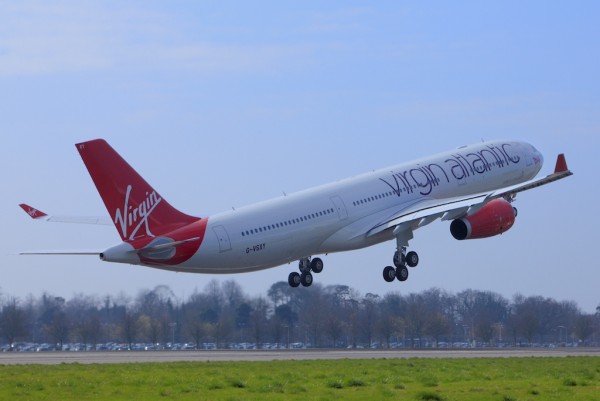Southern Spain’s Big Airbus Bet Goes Wrong as Suppliers Struggle
Over the course of almost a decade, Airbus SE supplier UMI Aeronautica SL pivoted from military to commercial aircraft, making parts including door components for the A320 and A330, among the most popular jets in the sky.
Defense orders were languishing, while commercial aviation enjoyed a prolonged boom, so shifting more than two thirds of output made sense.
Now the Spanish company and its about 300 employees are caught up in the worst crisis the aviation industry has ever known, striking hardest where UMI built its expertise: passenger aircraft that are now sitting idle as the coronavirus grounds global fleets.

“About 35% of our staff have been idled, as we had a corresponding drop in our workload” said Co-Chief Executive Officer Antonio Ramirez in an interview. “But that’s only the beginning, because the situation is expected to get even worse.”
UMI’s troubles reflect the fate of the bigger aerospace cluster that southern Spain has carved out over the years. Rising from the vast fields of orange- and olive-tree groves near Seville is the Aerópolis business park that was created in 2003 and is now home to more than 85 companies catering to Airbus, Boeing Co. and other manufacturers. As planemakers cuts jobs and production, the effects are rippling through the region of Andalusia, where the number of unemployed is already Spain’s highest.
Cuts Coming?
Airbus has furloughed more than 3,000 workers in Spain due to the impact of Covid-19, and the company’s chief Guillaume Faury is expected to make a decision on permanent job cuts by July. About fourth-fifths of the 2.5 billion ($2.8 billion) in revenue generated by the Andalusian suppliers come from the European planemaker, which employs 6,000 workers in the region and has seven factories in the country, including the final assembly line for the A400M military transport.
Military programs like the Airbus A400M were until recently UMI’s main business, but in the last two years its output “practically halved,” prompting a strategic shift, Ramirez said. With air passenger demand not recovering any time soon, suppliers in the region are now trying to revert back to military production, effectively flipping the business logic many had adopted prior to the crisis, said Ramirez, who is also vice-president of the Fedeme Andalusian Federation of metal companies.
Ramirez said the A350 and the A330 wide-body models are the hardest-hit programs, along with the Boeing 737 Max, a model that was already struggling before the pandemic because of two deadly crashes in rapid succession.
For the Andalusian suppliers, that has meant idling almost half of their 16,000 workers. They have so far sought to protect liquidity through state-backed credit lines and made use of the national temporary layoff program, known as ERTE. Should the crisis persist, the workload of regional suppliers—mostly metallic parts makers and engineering firms—could drop as much as 50% in coming years, Ramirez estimates.
Potential consolidation
In order to mitigate the impact of the pandemic, some companies are laying the groundwork for future consolidation, said Juan Roman, managing director of Andalucia Aerospace, a cluster of about 130 aeronautical companies in the region. Possible suitors also include Spanish and international venture-capital funds, he said.
“Our companies must gain size through alliances and even M&A to be more competitive in the future,” Roman said.
Pulling together won’t necessarily be easy, said Jose Luis Galan, a professor who studies corporate organizations at the University of Seville. Previous attempts in the 1980s failed because many of the smaller companies were protective of their own expertise and resisted bonding together, he said. But given the scale of the crisis, this time round may be different.
“They may have no choice anyway,” Galan said. “With such a big shock, many of them are going to disappear.”
One conclusion from the crisis is that being so closely linked to Airbus’s fortunes carries risk. A new maintenance facility by Irish discount airline Ryanair Holdings Plc in Seville is one example of the region trying to attract other businesses. It’s a plan supported by the Andalusian government and centered around boosting the use of new materials for zero-emission aircrafts, as well as new technologies such as the 5G wireless standard and artificial intelligence.
“The Andalusian aerospace ecosystem is attractive enough to open new market niches and receive direct investments, not only to work as a plane-makers supplier,” Rogelio Velasco, head of the regional economy and business department, wrote in emailed answers to questions.
Similar Stories

Silk Way AFEZCO and FF Construction collaborate to shape the future of Silk Way Cargo Village
View Article
CPaT announces new contract with Romanian based airline, Legend Airlines
View ArticleJAS Worldwide signs SPA with International Airfreight Associates B.V.
JAS Worldwide, a global leader in logistics and supply chain solutions, and International Airfreight Associates (IAA) B.V., a prominent provider of comprehensive Air and Ocean freight services headquartered in the…
View Article
LATAM is once again part of the Dow Jones Sustainability Index
View Article
Aeromexico now connects Miami with Cancun
View Article
WorldACD Weekly Air Cargo Trends (week 50) - 2024
View ArticleGet the most up-to-date trending news!
SubscribeIndustry updates and weekly newsletter direct to your inbox!





